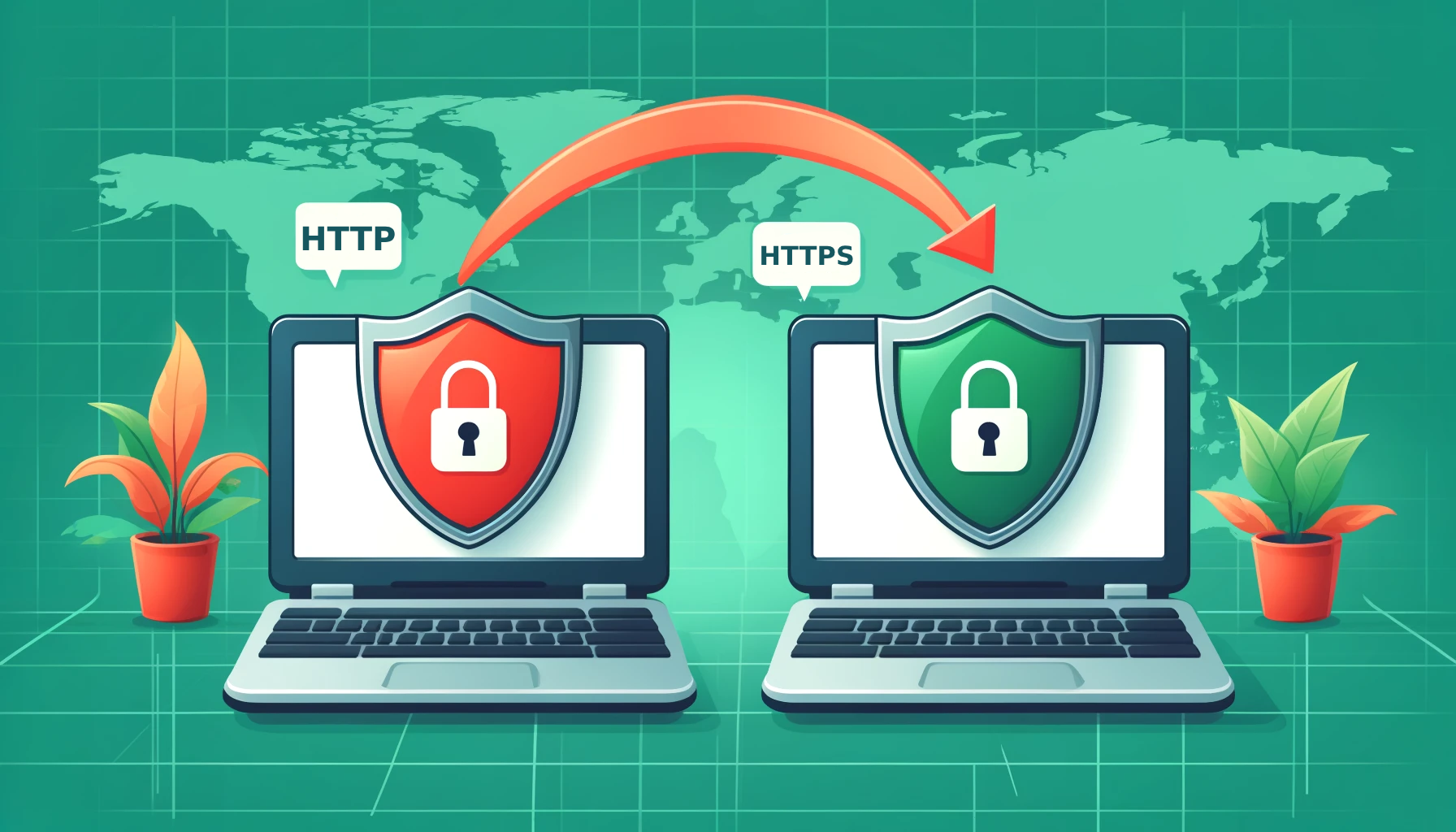In today’s digital age, maintaining privacy and optimizing internet performance are crucial for both individuals and businesses. One of the tools that play a significant role in achieving these objectives is the HTTP proxy. This article explores what HTTP proxies are, why they are necessary, and where you can purchase them.
What is an HTTP Proxy?
An HTTP proxy is a server that acts as an intermediary between a client (such as a web browser) and the internet. When you use an HTTP proxy, your internet requests are first sent to the proxy server, which then forwards these requests to the target web server. The responses from the web server are then sent back to the proxy, which, in turn, forwards them to you. This process masks your original IP address, providing anonymity and security.

HTTP proxies are specifically designed to handle HTTP traffic, making them ideal for web browsing and other activities that involve web-based protocols. They can filter and cache web pages, enhancing the speed and efficiency of your browsing experience. By using an HTTP proxy, you can access geo-restricted content, bypass internet censorship, and protect your online identity from prying eyes.
HTTP proxies come in various forms, including transparent, anonymous, and elite proxies. Transparent proxies do not hide your IP address and are often used for caching content. Anonymous proxies hide your IP address but reveal that you are using a proxy. Elite proxies, also known as high anonymity proxies, offer the highest level of privacy by hiding both your IP address and the fact that you are using a proxy.
Why Are HTTP Proxies Needed and How Are They Used?
HTTP proxies serve a multitude of purposes, making them indispensable for various online activities. Here are some key reasons why they are needed:
- Anonymity and Privacy: HTTP proxies hide your IP address, ensuring that your online activities remain anonymous. This is crucial for protecting your privacy, especially when accessing sensitive information or using public Wi-Fi networks.
- Access Control: Organizations use HTTP proxies to enforce internet usage policies. By routing traffic through a proxy, administrators can monitor and control which websites employees can access, enhancing security and productivity.
- Content Filtering: HTTP proxies can filter content based on specific criteria, blocking access to harmful or inappropriate websites. This feature is particularly useful in educational institutions and workplaces.
- Bandwidth Savings: By caching frequently accessed web pages, HTTP proxies reduce the amount of bandwidth used, resulting in faster load times and lower costs for businesses with high internet usage.
- Geo-restriction Bypass: HTTP proxies enable users to access content that is restricted to specific geographical regions. This is useful for streaming services, online shopping, and accessing region-specific websites.
- Improved Security: HTTP proxies can act as a barrier between your network and the internet, protecting against malware, phishing attacks, and other cyber threats.
- Load Balancing: In large networks, HTTP proxies distribute the load across multiple servers, ensuring optimal performance and preventing any single server from becoming a bottleneck.
- Web Scraping: Businesses use HTTP proxies for web scraping, collecting data from websites without being blocked or throttled. This is essential for competitive analysis, market research, and SEO optimization.
- Testing and Development: Developers use HTTP proxies to test websites and applications from different locations and networks, ensuring they function correctly under various conditions.
- Enhanced Browsing Speed: By caching web pages and compressing data, HTTP proxies can significantly improve your browsing speed, providing a smoother and more efficient internet experience.
In conclusion, HTTP proxies offer a range of benefits, from enhanced privacy and security to improved performance and accessibility. They are essential tools for both individuals and organizations seeking to optimize their online activities.
Comparing HTTP and HTTPS Proxy Protocols
HTTP and HTTPS proxies are essential tools for managing internet traffic, providing anonymity, and enhancing security. Understanding their differences is crucial for selecting the right proxy for your needs.

HTTP Proxy
An HTTP proxy handles requests and responses between a client and a web server using the Hypertext Transfer Protocol (HTTP). It forwards client requests to the server and relays the server’s responses back to the client. HTTP proxies are straightforward and widely used due to their simplicity and efficiency. However, they do not encrypt the data, making it vulnerable to interception and attacks. This lack of encryption means that HTTP proxies are less secure, although they offer faster performance due to the absence of encryption overhead.
HTTPS Proxy
An HTTPS proxy, on the other hand, uses the Hypertext Transfer Protocol Secure (HTTPS) to manage internet traffic. It operates similarly to an HTTP proxy but adds a layer of security by encrypting the data between the client and the proxy server using SSL/TLS protocols. This encryption ensures that the data remains confidential and protected from eavesdropping and tampering. HTTPS proxies provide a higher level of security, making them ideal for sensitive transactions and activities that require confidentiality. The encryption process, however, can introduce slight delays compared to HTTP proxies.
Conclusion
In summary, the primary difference between HTTP and HTTPS proxies lies in the level of security they offer. HTTP proxies are faster and simpler but lack encryption, making them suitable for non-sensitive data transmission. HTTPS proxies provide robust security through encryption, protecting data integrity and confidentiality, which is crucial for secure transactions. Choosing between HTTP and HTTPS proxies depends on the specific requirements for speed and security in your internet activities.
Comparing HTTP and SOCKS Proxy Protocols
HTTP and SOCKS proxies serve as intermediaries for internet traffic, providing anonymity and control over web access. Understanding their differences is essential for choosing the right proxy based on your specific needs.
HTTP Proxy
An HTTP proxy is designed to handle web traffic specifically using the Hypertext Transfer Protocol (HTTP). It processes and forwards HTTP requests and responses between clients and web servers. HTTP proxies are typically used for web browsing, caching web pages to improve load times, and filtering content. However, they are limited to HTTP traffic and lack support for other types of data transmissions.
SOCKS Proxy
A SOCKS proxy, on the other hand, operates at a lower level and is more versatile. It can handle any type of traffic, whether it be HTTP, FTP, SMTP, or other protocols, making it suitable for various applications beyond web browsing. SOCKS proxies, especially SOCKS5, offer enhanced features such as authentication and support for UDP, providing greater flexibility and security. They do not interpret the data being transferred, which allows them to manage any kind of network protocol.
Conclusion
In summary, the main difference between HTTP and SOCKS proxies lies in their versatility and scope of use. HTTP proxies are specialized for web traffic and are effective for caching and content filtering but are limited to HTTP/HTTPS protocols. SOCKS proxies are more flexible, capable of handling a wide range of network protocols, making them suitable for diverse internet activities. Choosing between the two depends on whether your primary need is web-specific tasks or broader network traffic management.

When it comes to purchasing HTTP proxies, it is important to choose a reputable provider that offers reliable and high-quality proxies. One such provider is Proxy5.net, which offers a range of HTTP proxies with various features to meet your specific needs. By opting for a trusted provider, you can ensure that you receive proxies with high speed, reliability, and robust security features. Investing in quality HTTP proxies will enhance your online experience and provide the privacy and performance you require.
